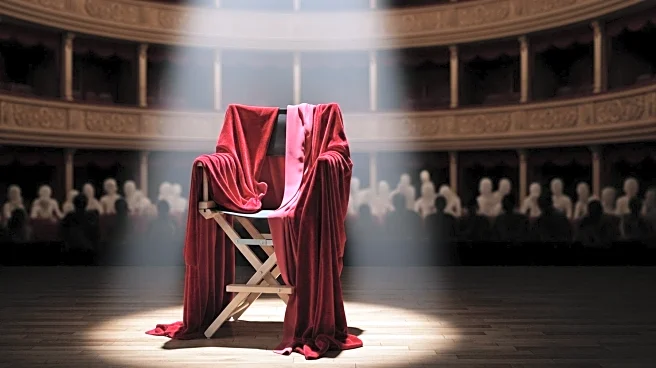What's Happening?
Jude Law's performance as Vladimir Putin in Olivier Assayas's film 'The Wizard Of The Kremlin' received a 10-minute standing ovation at its world premiere during the Venice Film Festival on August 31, 2025. The film, which also stars Paul Dano and Alicia Vikander, has sparked significant discussion among festival attendees. Law emphasized that his portrayal was not meant to be an impersonation, while Dano described his role as personally enlightening. The film is an adaptation of Giuliano Da Empoli's novel, directed by Assayas, and has generated considerable festival buzz, potentially influencing awards season dynamics.
Why It's Important?
The enthusiastic reception at Venice highlights the film's potential impact on the upcoming awards season. Such festival reactions often serve as early indicators of industry interest and can lead to increased market attention and distributor interest. The film's political themes, combined with star power and auteur direction, suggest it could resonate with audiences and critics alike, especially during a politically charged period. The extended ovation may boost the film's visibility and enhance its chances for awards consideration, influencing the trajectory of political films in 2025.
What's Next?
Following the Venice premiere, the film will likely continue to garner attention as it moves through fall festivals and begins its awards season campaign. Key developments to watch include press screenings, buyer interest at the Venice market, and the conversion of festival applause into sustained awards campaigning. The film's reception could shape its release strategy and influence its positioning in the awards season, potentially leading to nominations for its cast and creative team.
Beyond the Headlines
The film's portrayal of a political figure like Putin may spark broader discussions about the role of cinema in interpreting contemporary political events. It could also influence how political narratives are crafted and received in the film industry, highlighting the intersection of art and politics. The film's reception may reflect changing audience attitudes towards political storytelling and the impact of star-driven narratives on public discourse.








